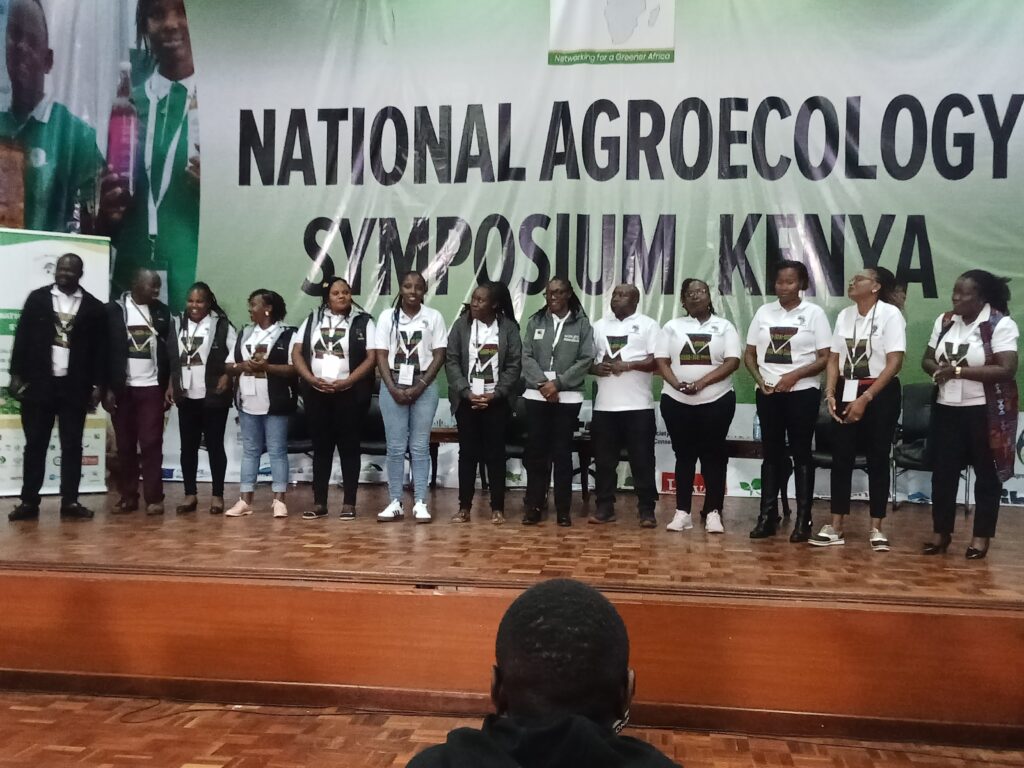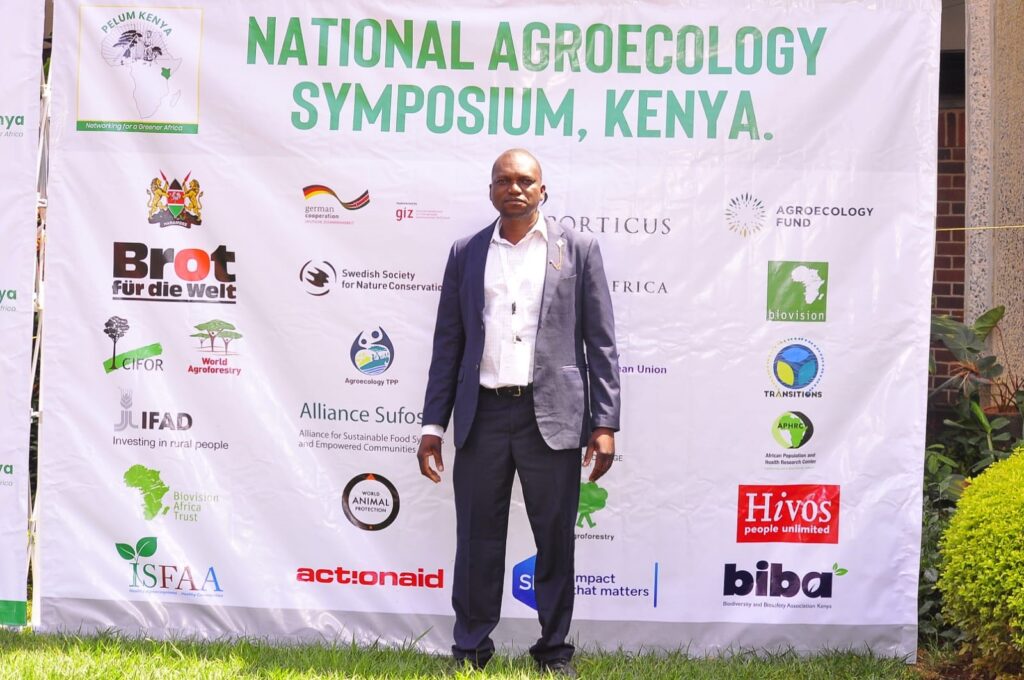
Nairobi buzzed with more than its usual energy on July 10th and 11th, 2025. At the Kenya School of Monetary Studies, a powerful convergence took place: the 2nd National Agroecology Symposium, convened by PELUM-Kenya. This wasn’t just another gathering; it was a vibrant declaration, a strategic summit, and a collective push to firmly place agroecology at the very heart of Kenya’s agricultural and food systems transformation.
For two intensive days, farmers, researchers, policymakers, NGOs, consumers, youth leaders, and private sector innovators united under a shared vision: a Kenya nourished by food systems that are not only productive but fundamentally sustainable, resilient, healthy, and equitable.
Beyond Talk, Towards Transformation
This year’s symposium moved beyond simply raising awareness. Its core mission was clear: to catalyze transformative dialogue and action. Recognizing the urgency of Kenya’s food security challenges, exacerbated by climate change, soil degradation, and economic strains. The symposium focused on forging the pathways from principle to practice. The strategy? Multi-stakeholder engagement, dynamic knowledge sharing, and forging strategic partnerships.
The atmosphere crackled with purpose. Panel discussions tackled the hard questions:
- Policy & Investment: How can national and county policies shift incentives away from input-intensive, environmentally costly models and towards supporting agroecological practices? What does meaningful budget allocation look like?
- Markets & Value Chains: How do we build robust, fair-trade markets that connect agroecological farmers directly to consumers who value healthy, locally produced food? How do we ensure farmers reap just rewards?
- Knowledge Co-Creation: Bridging the gap between indigenous farmer wisdom and cutting-edge scientific research. How do we create accessible, farmer-led learning and innovation systems?
- Scaling Up: Moving beyond pilot projects. What are the most effective models for multiplying the impact of agroecology across Kenya’s diverse landscapes and communities?
- Climate Resilience: Showcasing agroecology not just as sustainable farming, but as a frontline strategy for climate change adaptation and mitigation.
The Power of Collective Wisdom
The true strength of the symposium lay in its diversity. Hearing the lived experiences of smallholder farmers practicing agroecology alongside the perspectives of government agricultural officers and university researchers created a rich tapestry of insight. Breakout sessions buzzed with practical exchanges:
- A seasoned farmer from Kisii sharing successful natural pest management techniques.
- A youth group from Machakos presenting their thriving agroecology enterprise model.
- Researchers discussing soil health restoration data.
- Policymakers engaging directly with farmer networks on regulatory barriers.
Testimonials echoed the shared commitment:
“This conference isn’t just about farming methods; it’s about reclaiming our food sovereignty, protecting our land for future generations, and building health from the soil up.” – Smallholder Farmer Participant
“The energy here is undeniable. Agroecology is no longer a niche concept; it’s recognized as essential for our national food security and environmental goals. The challenge now is coordinated action.” – Government Representative
“The partnerships forming here – between NGOs, academia, and the private sector – are crucial. We need everyone at the table to build the resilient food systems Kenya deserves.” – Research Institution Attendee
Planting the Seeds for the Future
The 2025 PELUM-Kenya National Agroecology Conference concluded not with an ending, but with a powerful beginning. Key outcomes included:
- Strengthened Alliances: Concrete steps towards formalizing multi-stakeholder platforms for ongoing collaboration and advocacy.
- Actionable Roadmaps: Identification of priority areas for policy intervention, research, and market development.
- Amplified Voice: A unified call to action for national and county governments to integrate agroecology into core agricultural strategies and budgets.
- Renewed Momentum: A palpable sense of energy and commitment among participants to drive change within their respective spheres.
The Harvest ahead
The message resonating from the Kenya School of Monetary Studies is unequivocal: Agroecology is not merely an alternative; it is the essential foundation for transforming Kenya’s food system. It offers a pathway to nutritious food for all, thriving rural economies, rejuvenated ecosystems, and resilience in the face of a changing climate.
The seeds of dialogue, partnership, and strategy planted on July 10th and 11th need nurturing. The success of this conference will be measured by the actions that follow – in policy shifts, increased investment, expanded farmer support, and growing consumer demand for agroecological produce.
PELUM-Kenya and the diverse movement it represents have sounded the call. The transformation of Kenya’s food system, centered firmly on agroecology, is not just possible; it is underway. The challenge now is for all stakeholders – from the highest levels of government to the individual consumer – to heed the call and join the movement. The future of Kenya’s food, farms, and environment depends on it.

Why was ASEVI present?
For the Association of Social Entrepreneurs in Vihiga (ASEVI), participation in PELUM-Kenya’s National Agroecology Symposium was mission-critical. As a grassroot catalyst driving community-led solutions, our presence amplified the voice of Western Kenya’s smallholder farmers and innovators at a national policy-shaping table. The symposium offered an unparalleled platform to integrate Vihiga’s localized agroecology models – like bioenterprise hubs and circular economy initiatives – into Kenya’s broader transformation agenda. By engaging directly with policymakers, researchers, and funders, we not only gained strategic insights to scale climate-resilient practices but also forged vital partnerships to attract investment and technical support for Vihiga’s social enterprises. Crucially, our involvement ensured that the dialogue on food sovereignty centered hyperlocal realities, bridging the gap between national frameworks and the community – level entrepreneurship essential for true systemic change. In a space dedicated to action, our attendance signaled that social innovators are not just allies – they are the bedrock of Kenya’s agroecological future!
Stay tuned, stay engaged, and be part of cultivating Kenya’s agroecological future. #AgroecologyKenya #FoodSovereignty #SustainableAgriculture #PELUMKenya #KenyaFoodSystems

This is truly inspiring. I love how ASEVI is making sure local farmers voices are heard at the National level. The future of Kenya’s food system looks brighter. Real change starts from the ground up.
Yes Whitney. Let’s pull together for people and the planet..
Promoting food sovereignty goes beyond food security and socia-economic empowerment for indigenous communities . ASEVI has centred around these roles factoring in environmental protection by spearheading adoption of agroecological practices.I upvote this farming model which is geared towards posterity
Thank you Christine
This is so inspiring!
ASEVI’s participation truly highlights how grassroots innovators can shape national policy conversations around agroecology. #ClimateResilience
#FoodSovereignty
#AgroecologyKenya